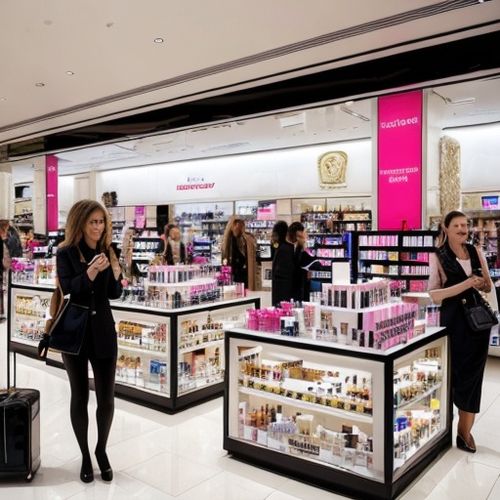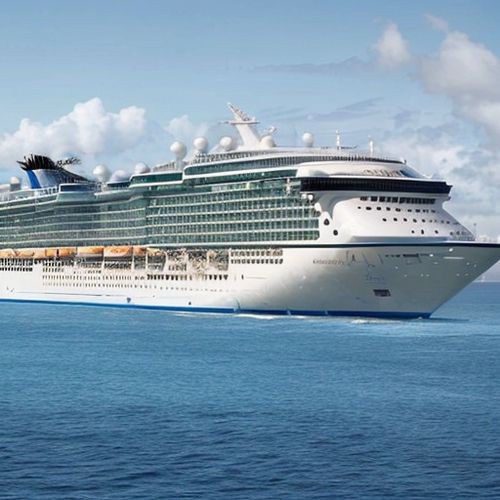The cruise industry has been one of the hardest-hit sectors during the COVID-19 pandemic, with companies implementing strict health protocols to ensure passenger safety. Recently, several major cruise lines have announced the relaxation of vaccine requirements, a move that has been met with both relief and concern. While the decision reflects a broader shift toward normalcy, it also raises questions about the ongoing risk of infection aboard these floating cities.
The Shift in Policy
For over two years, vaccines were a cornerstone of cruise safety measures. Passengers were required to show proof of vaccination, and in many cases, booster shots were mandated. These policies were instrumental in allowing the industry to resume operations after prolonged shutdowns. However, as global vaccination rates increased and the perceived severity of COVID-19 diminished, cruise lines began reevaluating their stance. Companies like Royal Caribbean, Carnival, and Norwegian Cruise Line have since dropped vaccine mandates for most sailings, aligning themselves more closely with airline and hotel industry standards.
The change has been welcomed by travelers eager to avoid the hassle of additional documentation. Yet, it has also sparked debates about whether the industry is moving too quickly. Critics argue that cruise ships, with their confined spaces and high passenger density, remain uniquely vulnerable to outbreaks. Unlike hotels or resorts, where guests can easily isolate or seek medical care, ships at sea have limited resources to handle sudden surges in cases.
The Lingering Threat of Infection
Despite the relaxation of rules, the risk of COVID-19 transmission on cruises has not disappeared. The virus continues to circulate globally, and new variants emerge with unpredictable levels of contagiousness and severity. Onboard environments, where hundreds or thousands of people share dining halls, entertainment venues, and ventilation systems, can still facilitate rapid spread. Even with enhanced cleaning protocols and improved air filtration, the close quarters of a ship present challenges that land-based venues do not.
Recent outbreaks on partially vaccinated cruises serve as a reminder of this reality. While severe cases have become less common due to widespread immunity, the inconvenience and discomfort of falling ill during a vacation remain significant drawbacks. Moreover, elderly passengers and those with underlying health conditions—a demographic well-represented on cruises—may still face higher risks, even if they are vaccinated.
Passenger Responsibility and Personal Choice
With vaccine requirements lifted, the burden of risk assessment now falls more heavily on individual travelers. Cruise lines emphasize that passengers are free to take personal precautions, such as wearing masks or avoiding crowded areas. Some companies continue to recommend vaccination and testing, even if they no longer require it. However, the effectiveness of these measures depends largely on voluntary compliance, which can be inconsistent.
This shift also places greater responsibility on travelers to research their chosen cruise line’s policies and the COVID-19 situation at their destinations. Ports of call may have their own entry requirements, and quarantine rules can vary widely. A lack of standardization means that passengers must navigate a patchwork of regulations, potentially complicating their travel plans.
The Future of Cruise Health Protocols
The cruise industry’s decision to drop vaccine mandates is part of a broader trend toward treating COVID-19 as an endemic rather than a pandemic threat. Many companies are betting that travelers are ready to accept a certain level of risk in exchange for a return to pre-pandemic normalcy. However, the situation remains fluid. If a highly virulent variant emerges or hospitalization rates rise, health protocols could quickly tighten again.
For now, the message from cruise lines is one of cautious optimism. They are banking on the idea that most passengers are either protected by prior infection or vaccination—or willing to take their chances. Whether this calculation proves correct may determine not only the industry’s recovery but also its ability to handle future public health challenges.
As travelers weigh the pros and cons of booking a cruise in this new era, the absence of vaccine requirements offers both freedom and uncertainty. The allure of the open sea remains strong, but so does the need for vigilance in the face of an ever-evolving virus.

By Elizabeth Taylor/Apr 11, 2025

By Christopher Harris/Apr 11, 2025

By William Miller/Apr 11, 2025

By Rebecca Stewart/Apr 11, 2025

By Megan Clark/Apr 11, 2025

By Grace Cox/Apr 11, 2025

By Benjamin Evans/Apr 11, 2025

By Victoria Gonzalez/Apr 11, 2025

By Thomas Roberts/Apr 11, 2025

By James Moore/Apr 11, 2025

By George Bailey/Apr 11, 2025

By Lily Simpson/Apr 11, 2025

By Megan Clark/Apr 11, 2025

By Jessica Lee/Apr 11, 2025

By Olivia Reed/Apr 11, 2025

By George Bailey/Apr 11, 2025

By Emily Johnson/Apr 11, 2025

By Victoria Gonzalez/Apr 11, 2025

By William Miller/Apr 11, 2025

By Grace Cox/Apr 11, 2025